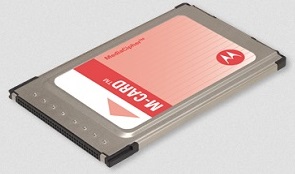ACA Seeks Exemption From Set-Top Security Integration Ban
The smarter way to stay on top of the multichannel video marketplace. Sign up below.
You are now subscribed
Your newsletter sign-up was successful

The American Cable Association is urging the FCC to exempt small cable operators from a set-top security interaction ban that took effect in July 2007, arguing that the rule saddles operators with “enormous” costs without achieving the goal of establishing a consumer retail market for the boxes.
“The ban has resulted in significantly higher costs to operators to purchase non-integrated STBs using CableCARDs that, other than separating out the security function, provide no greater consumer functionality,” ACA president and CEO Matthew Polka said, in a statement. “Given the burden that the integration ban has placed on small operators and the fact that a blanket exemption for a very small subset of the entire cable market would not harm the development of a retail market for set-top boxes, the time has come for relief from the integration ban for small cable systems operated by small operators.”
The ACA, which represents about 850 small- and mid-sized independent cable operators, made its plea for a blanket exemption in comments filed Monday (September 16) in connection with a TiVo petition asking that the FCC’s 2003 Plug and Play Order vacated by the U.S. Court of Appeals for the D.C. Circuit earlier this year in the EchoStar case be reinstated.
The ACA said the FCC, as part of the TiVo proceeding or any rulemaking it might pursue to consider its navigation rules following the EchoStar decision, should also seek comment on whether there’s still a need to apply the integration ban on smaller operators. If not, the FCC should likewise examine what size system and operator should be considered “small” for the purposes of this relief.
As part of its argument, the ACA said the integration ban has a disproportionate cost impact on its membership because smaller operators don’t get the same volume price benefits of larger operators.
At the same time, the ACA said it would continue to support TiVo boxes and other third-party retail devices.
The National Cable & Telecommunications Association this week asked the FCC to reject TiVo’s petition, while CBS, Viacom, 21st Century Fox, Disney and Time Warner agreed separately that the FCC should likewise refrain, or, if it does decide to act, to impose new regulations on all MVPDs, and not just cable operators.
The smarter way to stay on top of the multichannel video marketplace. Sign up below.
TiVo, meanwhile, wants a guarantee that cable subs can continue to use retail set-top boxes with CableCARDs, believing that that technical rules linked to the implementation of CableCARDs were contained in the same FCC order that was struck down despite that operator support for retail devices using the removable security modules was not the subject of the court challenge.
In its last report to the FCC, the NCTA said the top nine incumbent U.S. cable operators have deployed more than 42 million operator-supplied set-tops with CableCARDs since July 2007, versus 603,000 CableCARDs for use in TiVo boxes and other retail devices.
In a separate proceeding, a supplier to smaller operators has received some limited relief from the ban. In July, the FCC granted Adams Cable Equipment (ACE) a waiver that allowed it to sell 50,000 refurbished set-tops with integrated security it had in inventory to operators and consumers. ACE has since petitioned the FCC to expand the waiver to cover up to 200,000 older boxes with baked in security.
